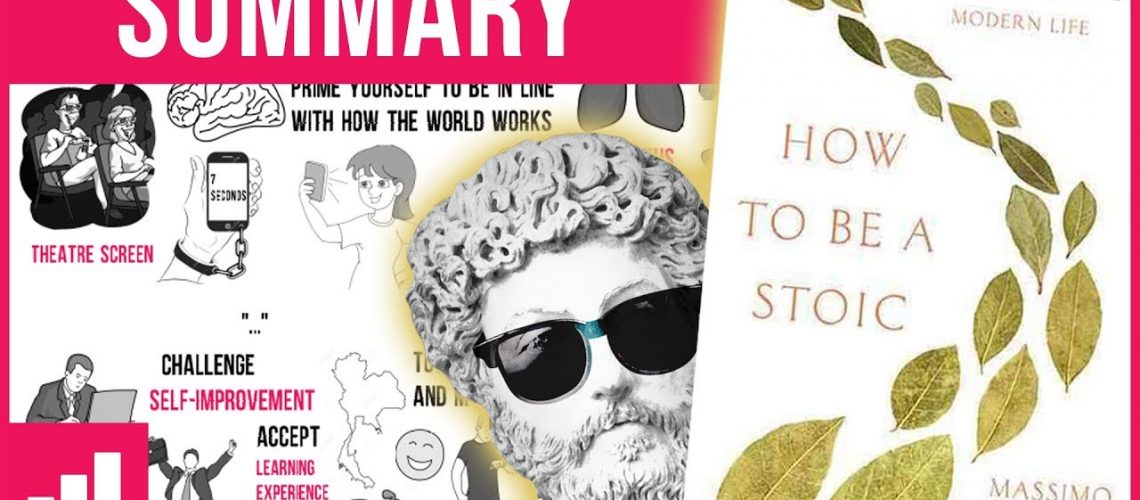Using Ancient Philosophy to Live a Modern Life
Whenever we worry about what to eat, how to love, or simply how to be happy, we are worrying about how to lead a good life. No goal is more elusive.
In How to Be a Stoic, philosopher Massimo Pigliucci offers Stoicism, the ancient philosophy that inspired the great emperor Marcus Aurelius, as the best way to attain it.
Learn 12 practical stoic exercises you can use to live a better life. If you execute on just a few of these, you’ll find yourself feeling less miserable and enjoying a more satisfying life.
How to Be a STOIC BOOK REVIEW SUMMARY
ONE PERCENT BETTER
Key Takeaways
EXERCISE 1: Examine Your Impressions
Evaluate your initial reactions to events, people and what you are told by taking a step back to be rational before your knee-jerk, over-emotional reactions cause unnecessary troubles. Ask that if whatever is being thrown at you is under your control or not. If it is, then act on it. If it isn’t, then relax.
EXERCISE 2: Remind Yourself of Impermanence
Not everything is long-lasting or permanent. This doesn’t mean you can’t enjoy every moment leading up to the loss of someone or something. By living this way, you won’t get any nasty surprises.
EXERCISE 3: The Reverse Clause
Whenever planning an action, mentally rehearse what the plan entails. You prime yourself to be in line with how the world works and therefore less agitated than the person who expects everything goes well.
EXERCISE 4: How can I use Virtue and How?
The one question to ask yourself. Every challenge in life is a perfectly good chance to work on self-improvement. Accept the learning experiences.
EXERCISE 5: Pause and Take a Deep Breath
Epictetus said, “Remember it is not enough to be hit or insulted to be harmed. You must believe that you are being harmed. If someone succeeds in provoking you, realize that your mind is complicit in the provocation.” Pause and taking a deep breath before you respond impulsively can do wonders.
EXERCISE 6: Other-ize
React in the same patient spirit. If we see someone else seemingly over-reacting to a situation, if we put ourselves in their shoes, there’s a good chance we would react the same way unless we are well versed inStoic practices.
EXERCISE 7: Speak Little and Well
Epictetus expresses his fondness of intellectual discussion as opposed to fundamentally empty matters. Don’t force yourself to be someone you’re not, but be conscious of what you say and how much effects yourself and others.
EXERCISE 8: Choose Your Company Well
You are the average of the 5 people you spend the most time with. Good company to the Stoics means those that are interested in following Virtue and improving themselves.
EXERCISE 9: Respond to Insults with Humour
By laughing off an insult, we are implying that we don’t take the insulter and his insults seriously. A humorous reply to an insult can be far more effective than a counter insult would be.
EXERCISE 10: Don’t Speak Much About Yourself
“Just because you enjoy recounting your exploits doesn’t mean others derive the same pleasure from hearing about them.” – Epictetus
EXERCISE 11: Speak Without Judging
Always state the situation, rather than making conclusions.
EXERCISE 12: Reflect on Your Day
What good did you do today? What could you have done better? Seneca suggests doing this in the evening before going to bed because bed can make you feel groggy and lose concentration.


